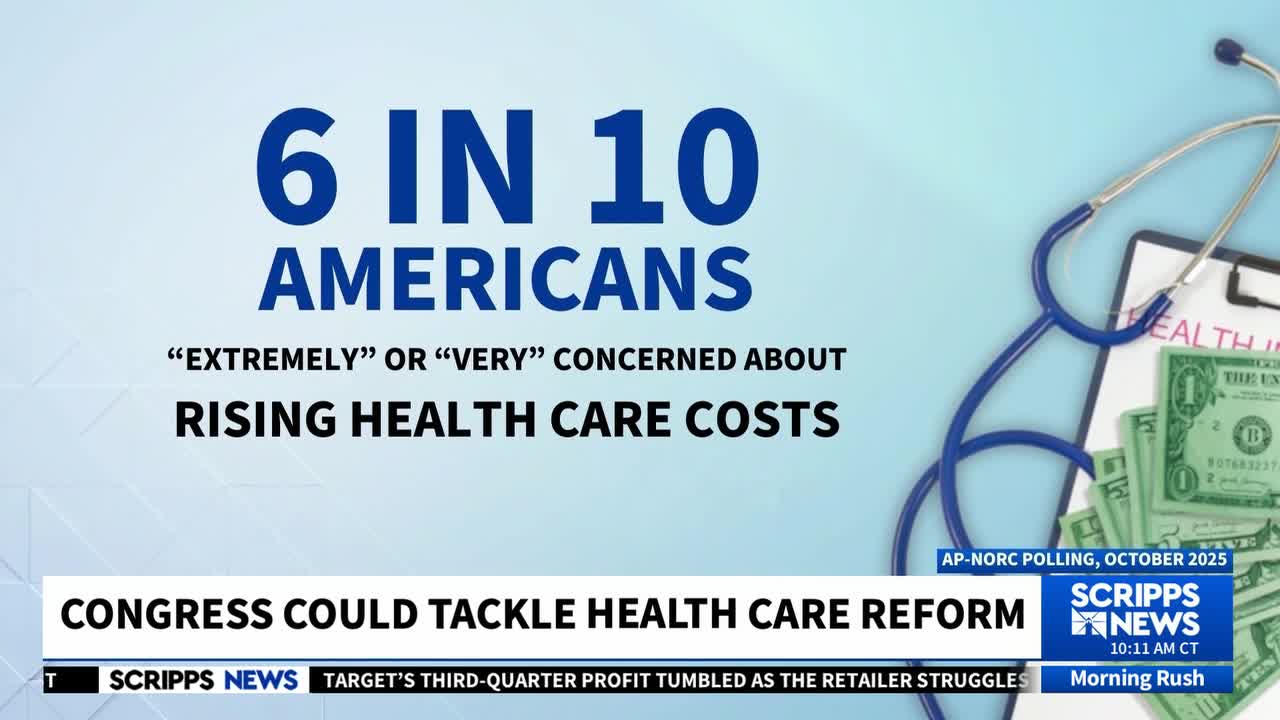We are less than six weeks away from health insurance premiums increasing for millions of Americans, especially those who get their insurance through the Affordable Care Act marketplace.
The White House, as well as leaders in Congress, are signalling interest in a health care reform bill, meant to address the high cost of insurance premiums.
RELATED STORY | Premium Pain: Why your health care monthly premium is going up & what you can do about it
Many looming questions remain including whether any reform has the capability of getting enough votes to pass.
As part of a deal to reopen the government in November, the Senate promised a vote on expiring Affordable Care Act subsidies. That pending vote could be used as the basis for a significant health care debate.
CONCERN FOR AMERICANS
The cost of healthcare is one of the biggest issues facing the country. A recent Scripps News/Talker Research survey found that 1 in 4 Americans report health care as their most important issue.
An October AP/NORC poll found about 6 in 10 Americans are "extremely" or "very" concerned about health care costs going up next year. With Republicans controlling the House, the Senate and the White House, the odds of any new health care policy change starts with conservatives and active discussions are taking place.
HEALTH SAVINGS ACCOUNTS
One lawmaker to watch during this debate is Republican Senator Bill Cassidy of Louisiana, a doctor himself.
"We have got to be more creative than the federal government throwing money at it," Sen. Cassidy said recently on the Senate floor.
Sen. Cassidy's plan is different from what Democrats want because Democrats want to send billions of taxpayer dollars to extend subsidies expiring in December related to insurance plans created by the Affordable Care Act.
The Cassidy plan calls for sending that money to health care flexible savings accounts instead so taxpayers can pay for costs related to their health. Cassidy showed a chart of a hypothetical woman recently on the Senate floor to explain how his plan would work.
IN CASE YOU MISSED IT | This Medicare tweak may save you $11 per month, but you’ll still pay more next year
"It goes to an account that she controls that she can spend on her physician, her dental care, her prescriptions," Cassidy said.
"We need to empower her," he added.
Cassidy says he is working with the White House on legislation and believes a vote is possible before the end of the year. President Donald Trump previously endorsed a version of this, saying on his Truth Social platform that taxpayer dollars should "BE SENT DIRECTLY TO THE PEOPLE SO THAT THEY CAN PURCHASE THEIR OWN, MUCH BETTER, HEALTHCARE, and have money left over."
DEMOCRATIC CONCERNS
However, many Democrats on Capitol Hill do not believe such legislation can pass before January, when health insurance premiums are set to increase.
Instead, Democratic Sen. Jeanne Shaheen of New Hampshire, a key figure in this debate, is working with Republicans for an extension of existing Affordable Care Act subsidies, the same subsidies that were central to the recent government shutdown.
Shaheen has indicated a willingness to potentially accept new income limits as part of a deal.
"I am 100% committed to getting this done," Shaheen said during a recent press conference.




